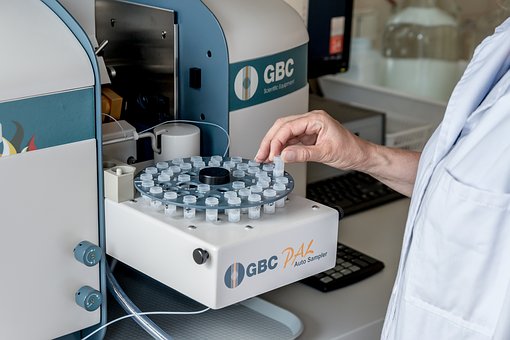Category: Journal Club
When you see CRE: Add Equal Parts Antimicrobial Stewardship and Infection Control
The following was previously posted by Dr. Marcelin to SHEA Journal Club published online in April 2019. Dealing with carbapenem resistant organisms presents both an antimicrobial stewardship and infection control problem. Richter et al. aimed to predict risk factors for carbapenem resistance among Gram-negative rods (CR-GNR). The authors were particularly interested in whether differences exist […]
May 2, 2019

Does de-escalation of anti-MRSA therapy for culture-negative pneumonia affect patient outcomes?
Nosocomial pneumonia is a common hospital-acquired infection and has a high mortality rate in the critically ill. Because drug-resistant bacteria like Pseudomonas aeruginosa and methicillin-resistant Staphylococcus aureus (MRSA) are commonly responsible for these infections, guidelines recommend broad-spectrum empirical therapy that includes anti-MRSA coverage. Treatment is ideally de-escalated and refined based on culture results. However, culture negative infections […]
Apr 22, 2019

What to Expect in Antimicrobial Stewardship…Shorter is Better, Of Course!
The following was previously posted by Dr. Marcelin to SHEA Journal Club published online in February 2019. Electronic clinical decision support tools and rapid diagnostic testing have significantly impacted the way we practice Infectious Diseases. Despite these scientific gains, Antimicrobial Stewardship still requires an understanding of the behavioral science of prescribing. Prior studies have demonstrated […]
Feb 26, 2019

Prescribing in Pediatric Patients: Who is at Risk?
The following was previously posted by Dr. Marcelin to SHEA Journal Club published online in January 2019. In the inpatient setting, much of the broad-spectrum antibiotic prescribing occurs in the context of the sepsis syndrome, where uncertainty leads to overly broad empiricism. Development of antibiotic-resistant Gram-negative rods (high-risk GNRs) may complicate empiric treatment choices, and […]
Jan 31, 2019

Baloxavir Marboxil for Uncomplicated Influenza – Worth the Cost?
Influenza season is in full swing and with that, the discussions surrounding treatment are heating up! Dr. Hankins, a second year ID fellow, led our recent journal club discussion on Baloxavir. The New England Journal of Medicine article, Baloxavir Marboxil for Uncomplicated Influenza in Adults and Adolescents, discusses two randomized control trials, that were double-blinded for […]
Jan 28, 2019

Global Burden of Tuberculosis: Are We Making Any Improvements?
UNMC is a proud to play a critical role in biopreparedness and global health, which also means we have to stay up-to-date on global health, including tuberculosis. In a recent Infectious Diseases journal club, Dr. Lawler presented the following 2018 Lancet article on the global burden of TB. Global, regional, and national burden of tuberculosis, […]
Jan 21, 2019

Decisive De-labelling in Cancer Patients: Just what the Doctor Ordered
The following was previously posted by Dr. Marcelin to SHEA Journal Club published online in January 2019. Although 10% of Americans report penicillin allergies, 90% of those allergies are not substantiated. Up to 25% of patients living with cancer report penicillin allergies, but more than half of these are low risk and could tolerate beta-lactams. […]
Jan 16, 2019

SeptiCyte: Is It Ready for Prime-time?
The following is a summary of a recent ID Journal Club, presented and written by 2nd year ID Fellow Dr. Raj Karnatak: Sepsis defined as “life-threatening organ dysfunction due to the dysregulated host response to an infection” [1]. Sepsis most commonly results from a bacterial infection, or less frequently from a fungal or viral infection. […]
Jan 9, 2019

Technology vs. Humans: Role of Rapid Diagnostics and Antimicrobial Stewardship in Cancer Patients
Rapid diagnostic testing (RDTs) plays an important role in Antimicrobial Stewardship Programs (ASP) and highlights the impact of the Microbiology laboratory on reducing inappropriate antibiotic use, particularly in hospitalized patients. Early microbial identification with RDTs can lead to earlier initiation of targeted antimicrobial therapy, which can in turn result in shorter hospitalization, fewer adverse events […]
Jan 3, 2019

Skin Deep: A Closer Look at Treatment of Skin and Soft Tissue Infections
Current guidelines for management of Skin/Soft Tissue Infections (SSTIs) were published in 20141. Nevertheless, management of SSTIs is variable, likely driven by the fact that culture data is often unavailable to direct clinical decision making. Treatment variability results in inappropriate antimicrobial use, highlighting the need for antimicrobial stewardship. Consequently, management of SSTIs is one area […]
Dec 3, 2018

Recent Posts
Archives
- January 2026
- December 2025
- November 2025
- October 2025
- August 2025
- July 2025
- May 2025
- April 2025
- March 2025
- February 2025
- January 2025
- December 2024
- November 2024
- October 2024
- September 2024
- August 2024
- July 2024
- June 2024
- May 2024
- April 2024
- March 2024
- February 2024
- January 2024
- December 2023
- November 2023
- October 2023
- September 2023
- August 2023
- July 2023
- June 2023
- May 2023
- April 2023
- March 2023
- February 2023
- January 2023
- December 2022
- November 2022
- October 2022
- September 2022
- August 2022
- July 2022
- June 2022
- May 2022
- April 2022
- March 2022
- February 2022
- January 2022
- December 2021
- November 2021
- October 2021
- September 2021
- August 2021
- July 2021
- June 2021
- May 2021
- April 2021
- March 2021
- January 2021
- December 2020
- October 2020
- September 2020
- August 2020
- July 2020
- June 2020
- May 2020
- April 2020
- March 2020
- February 2020
- January 2020
- December 2019
- November 2019
- October 2019
- September 2019
- August 2019
- July 2019
- June 2019
- May 2019
- April 2019
- March 2019
- February 2019
- January 2019
- December 2018
- November 2018
- October 2018
- September 2018
- August 2018
- July 2018
- June 2018
- May 2018
- April 2018
- March 2018
- February 2018
- January 2018
- December 2017
- November 2017
- October 2017
- September 2017
- August 2017
- July 2017
- June 2017
- May 2017
- April 2017
- March 2017
- February 2017
Categories
- Antibiotic Awareness Week
- Antimicrobial Stewardship
- Bench to Bedside
- Conferences and Presentations
- COVID-19
- Faculty and Staff
- Faculty Recruitment
- Fun With ID
- Guest blog posts
- HIV
- HIV/AIDS
- ICAP
- ID Grand Rounds Speakers
- ID History
- ID Pharmacy
- IDIG
- IDSA
- IDWeek
- In the News
- Infection Prevention and Control
- Journal Club
- Medical Education
- Micro
- Microbe Monday
- NBU
- Nebraska ASAP
- Nebraska ID Society
- Nebraska Medicine ASP
- Oncology ID
- Ortho ID
- Pediatric ID
- PharmToExamTable
- Publication Alert
- Research
- Transplant ID
- Uncategorized
- UNMC ASP
- UNMC Enhanced Medical Education Track
- UNMC ID Achievements
- UNMC ID Fellowship
- UNMC SCC
- UNMCID GIVES BACK
- Weekly Corona
- Why I Love ID
Recent Comments